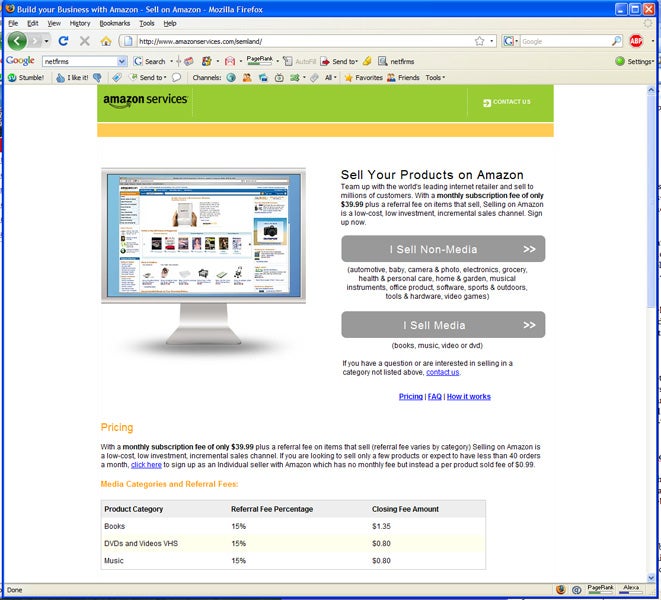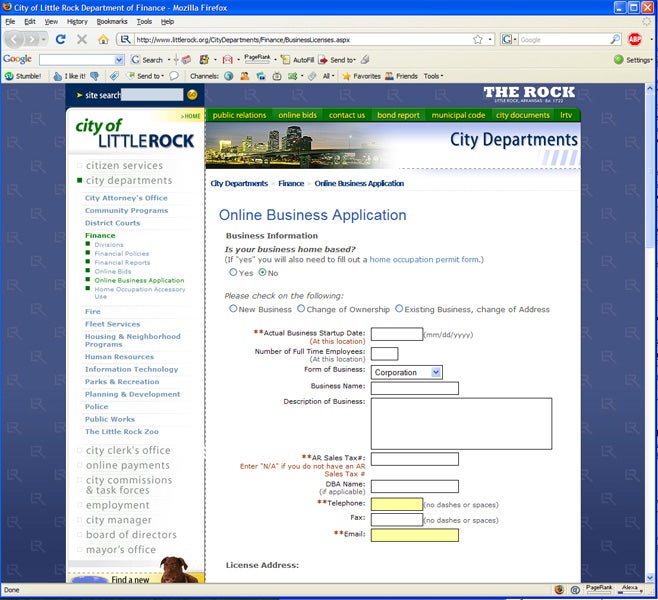1.
Start a Business
Regardless
of where you choose to operate your business, certain general requirements
always apply. Before you can begin completing specific online business steps
you must follow the basic rules for starting a business. Use these tools and
resources to help take you from preparing your business plan and to becoming a
successful business owner.
2.
Register a Domain Name
A
domain name is the web address of your online business. Choosing and
registering a domain name is the first step to starting an online business.
After you've chosen the name you'd like to register, the process is simple and
cost-friendly. Where to register your name is up to the discretion of
individual businesses.
Certified
Registering Authorities
Internet
Domain Name Registration Services
Abusive
Domain Name Registration
Be
careful to avoid possible security risks by becoming aware of potential scams.
The Federal Trade Commission issued a consumer alert about Domain Name
Registration Scams.
The
Internet Corporation for Assigned Names and Numbers is the non-profit
corporation that has technical oversight of Internet protocol address space
allocation, protocol parameter assignment, domain name system management, and
root server system management functions. It provides current news on issues
surrounding domain names.

3.
Select a Web Host
A
web host provides you with the space and support to create your website.
Choosing the host that best suits a business is up to the discretion of that business.
Costs and abilities, such as site maintenance, search registration, and site
development, vary from host to host but it is important for it to be both
reliable and secure.
4.
Design Your Website
The
website of your online business is extremely important to its success. Because
you don't have a physical location, this is considered your "store
front". Websites can be designed personally, by hiring someone to work as
your site designer, or by using an independent design firm.

Be
sure to comply with U.S. trademark and intellectual property laws. The same
laws and regulations apply to online businesses as regular businesses. Search
for trademarks currently in use to avoid infringing on another company's rights
on your website.
5.
Begin Advertising and Marketing
Similar
to the traditional market place, online businesses cannot be successful without
customers. For online businesses, these customers come in the form of site
visitors or viewers. Generating the highest amount of traffic possible on your
website will create the highest chance that those visitors will become
customers. Register with search engines and use keywords that will drive the
most traffic to your site.
Advertising
and marketing on the internet is regulated very similarly to the real world,
and many of the same rules apply. The Federal Trade Commission has created
several guides to help online businesses comply with these regulations.
Advertising
and Marketing on the Internet: Rules of the Road
DotCom
Disclosures: Information About Online Advertising Download Adobe Reader to read
this link content
For
additional information, visit our guide to Online Advertising Law.
6.
Comply with Online Business Regulations
Online
businesses must comply with special laws and regulations that apply only to
them. A lawyer that specializes in internet law can assist businesses with all
aspects of starting and operating an online business. Contact an expert at the
Federal Trade Commission for more information.

The
Anticybersquatting Consumer Protection Act of 1999 Download Adobe Reader to
read this link content
Selling
on the Internet: Prompt Delivery Rules
Children's
Online Privacy Protection Act
7.
Find State and Local Compliance Information
In
addition to Federal requirements, businesses must know and comply with state
and local laws and regulations. Select your state, county, and city to
determine what's required of your online business.
8.
Learn Federal, State, and Local Tax Requirements
Online
business are required to follow the same federal, state, and local tax laws as
regular businesses. If you are operating your online business in a state that
charges a sales tax; or levies a gross receipts or excise tax on businesses you
may have to apply for a tax permit or otherwise register with your state
revenue agency. Online businesses are responsible for collecting state and
local sales taxes from their customers when applicable, and paying these taxes
to state and local revenue agencies.
9.
Understand International Trade Laws
Operating
internationally requires many additional considerations from finding overseas
markets and suppliers to shipping and tax regulations. Follow international
trade laws for online business to be sure you are in compliance with all
regulations.
10.
Additional Startup Resources
These
guides provide additional information relevant to starting and operating an
online business.
Self-Employment
Resources
for business owners who are starting or operating a business through
self-employment.
Home-Based
Business
Resources
for online businesses that are based at home.
Strategies
for Growth: Technology and Growth
A
video series where experts and entrepreneurs discuss how taking advantage of
the latest technology can help your business.

3 comments:
Well, that may be real, but just because there may be a few bad egg in the market does not create the whole market binary matrix pro. You have the choice of whether you want
adidas ultra boost
coach outlet store online
nike blazer low
coach outlet store online
polo ralph lauren
pandora
coach outlet
cheap oakley sunglasses
off white
falcons jersey
Everything is very open with a precise explanation of the issues. It was definitely informative.
http://tbeby.com/skin-care/
http://tbeby.com/hair-fall/
http://tbeby.com/baldness/
Post a Comment